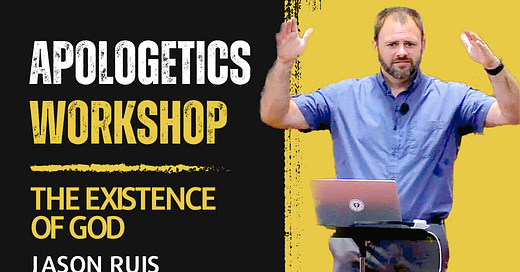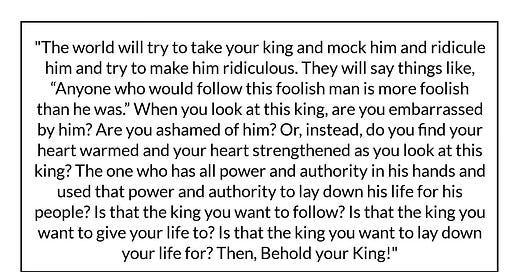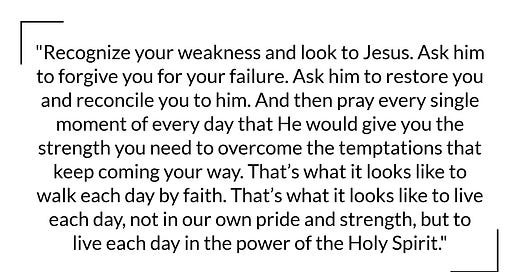
Holding Firm to the Word of God
[Read Titus 1:5-9]
I want to begin by saying this is the type of sermon that makes the elders in the room begin to squirm a little bit…lol. The weight of being an elder is heavy and bears upon each one of us. Most of the time, elders are going to feel like they are falling short of their calling and not doing a good job. So, when I begin to talk about the importance of their calling, they start to squirm. Then, as I begin to walk through the qualifications of an elder, they will probably squirm some more. That’s not my point. It is not my goal to place you upon the spit and roast you to a nice brown color. It is also not the purpose of this message to give others in the congregation tools to roast you either. That won’t do any of us any good. However, it also does us no good to ignore the fact that being an elder IS a high calling AND requires certain qualifications. So, we need to take these things seriously, but we need to take them seriously in a way that doesn’t result in condemnation because in Christ there is no condemnation. Amen?
Some of this is probably why I never planned on being a pastor—which, by the way, is the same office as an elder. It’s also probably why nobody else ever thought I would be a pastor. My call to ministry not only caught me off guard, but caught everyone else off guard as well, including my parents.
I still remember a conversation I had behind the barn with my dad as I was pursuing my call to ministry. At some point along the line, my dad pulled me off to the side behind the barn and said, “Jason, you remember that the Bible says that it’s better for a man to have a millstone hung around his neck than to lead a little one astray.” He was reminding me that this call to ministry wasn’t fun and games—even a call to youth ministry—it’s about life and death. Because of that conversation with my dad, to the best of my ability, I’ve never taken this calling lightly.
Then, as I was reading through the Bible one morning, the apostle Paul told me something similar. I was reading Acts 20, where Paul is speaking to the elders from the church in Ephesus. Paul knows that he will never see these elders again, so he’s giving them his final words. Then, in the middle of his final words he says, “Keep watch over yourselves and all the flock of which the Holy Spirit has made you overseers. Be shepherds of the church of God, which he bought with his own blood.” (Acts 20:28, NIV). That was another reminder of the high calling of an elder. An elder has been placed in their position by the Holy Spirit and they are given the task of shepherding the church of God. Not just any church, not their church, not a community church…the church of God. This is His church. Oh yeah, and by the way, this is His church because he purchased it with His blood. Whoa! Now, go shepherd this church that was purchased through the blood of Jesus Christ.
Paul is saying something similar in our passage this morning. He says, “For an overseer, as God’s steward, must be above reproach.” (Titus 1:7, ESV). This is the task of an elder. Elders are Overseers and they are Stewards of God’s house—the house he purchased with His blood.
As some of you probably know, when this was written, a steward was someone who cares for someone else’s property. They didn’t really own things, but were entrusted to take care of and manage someone else’s things. As stewards of God’s house—God’s flock—elders are called to take care of and manage—oversee—God’s property—which is you guys. And, to ramp things up another notch, the Bible also says this about elders: “They keep watch over you as men who must give an account.” (Hebrews 13:17, NIV). God has placed these men as stewards over His house, to oversee and manage and shepherd the flock that he purchased with his blood, and one day each one of us elders will have to give an account to God for the way we oversaw and shepherded his flock. Being an elder is a big deal and no small calling.
One of the ways an elder is to fulfill his calling as a Steward and Overseer is by teaching and correcting. In our passage Paul says that an elder should, “encourage others by sound doctrine and refute those who oppose it.” (Titus 1:9, NIV). So, as an Overseer and Steward, an Elder must encourage—or teach—sound doctrine and refute those who oppose sound doctrine. This makes sense doesn’t it? A Steward oversees God’s things in reference to the church, and God’s Word is one of those things. God expects His Word to be “managed” well—taught well and properly. It also makes sense in connection with last week’s message, right? If our knowledge of the truth builds up our faith and leads us in godliness, then it is important for our shepherds to lead us in the truth and correct us when we believe things that are false. False doctrine will eventually result in ungodliness, which results in destruction. As a Steward of God, the elders must continue to correct false doctrine and encourage/teach sound doctrine—which also means encouraging/teaching godliness and correcting ungodliness. That’s an essential part of their role. They are Overseers and Stewards who teach and correct based on God’s Word.
So, who should be an elder? First off, it’s important to remember what it says in James: “Not many of you should presume to be teachers, my brothers, because you know that we who teach will be judged more strictly.” (James 3:1, NIV). Yet, Paul also says, “If anyone sets his heart on being an overseer, he desires a noble task.” (1 Timothy 3:1, NIV). So, it’s a noble task but to whom much is given, much is expected, and there is greater accountability before the Lord. Again, this is a big deal.
So, who should be an elder? In this passage, you can break the qualifications into two areas: Life and Doctrine. There are qualifications regarding the life of an elder and the doctrine of an elder.
The last qualification listed in this passage will be the first qualification we look at this morning: “He must hold firmly to the trustworthy message as it has been taught…” (Titus 1:9, NIV). This is the Doctrine requirement. He must hold firmly to the Word of God. Not only that, but he must hold firmly to it AS IT HAS BEEN TAUGHT. That’s really important. They are not to go away into a closet somewhere, come up with their own interpretation, then hold firmly to it. Nope. They are to hold firmly to the Word of God as taught by the Apostles. So, an elder needs to read and study God’s Word, make sure they understand it rightly, then hold firmly to that Word, not allowing themselves to be swayed by cultural pressures and opinions. This is important because their job is to teach what is true and correct what is false. In order to do that, you have to know what is true and what is false and hold firmly to what is true.
So, his Doctrine has to be sound, but we also have to look at his Life. The Life qualifications begin by making a broad statement, saying, “An elder must be blameless…” (Titus 1:6, NIV). And later in the passage it says, “Since an overseer is entrusted with God’s work, he must be blameless…” (Titus 1:7, NIV). Blameless. What does that mean? Does it mean that an elder must be perfect? No way. Actually, the Bible says that anyone who thinks he is not a sinner is a liar—which is only adding to their sin. So, it doesn’t mean an elder must be perfect. They are messed up sinners like the rest of us who need the grace and forgiveness of Jesus. But, when Paul is talking about blamelessness, he is giving an overarching qualification for an elder. When you look at this man, would you generally characterize his life as blameless? One commentator said, “[He] would not be open to attack or criticism in terms of Christian life in general or in terms of the characteristics that Paul goes on to name…each named characteristic marks his life.” (Knight, p. 289). So, blamelessness overarches all the other characteristics.
The other characteristics begin by looking at the elder’s home. It says, “An elder must be blameless, the husband of but one wife, a man whose children believe and are not open to the charge of being wild and disobedient.” (Titus 1:6, NIV). The general principle is that an elder will lead the church in a similar way that he leads his home. If his house is a mess and out of order, most likely the church will end up being a mess and out of order. Again, this isn’t saying that an elder’s kids should be perfect. They are sinners like their father and the rest of the congregation. But, there should be a sense of obedience and seeking the Lord in their home. The qualification of “the husband of but one wife,” is literally translated, “a one woman man.” It’s not requiring one wife, it’s limiting him to one wife—he should not have two wives. It’s also talking about someone who is faithful to their wife. It is not requiring that someone be married in order to be an elder, in the same way that the rest of the verse isn’t requiring an elder to have children. If they have children, they should parent their children well. If they have a wife, they should love their wife as Christ loved the church and be faithful. If they don’t have a wife yet they should be faithful to their possible future wife. They way a man leads his home will overflow into how he leads the church. That’s the general principle of this requirement of an elder.
The next list is pretty straight forward: “not overbearing, not quick-tempered, not given to drunkenness, not violent, not pursuing dishonest gain. Rather he must be hospitable, one who loves what is good, who is self-controlled, upright, holy and disciplined.” (Titus 1:7–8, NIV). I remember walking through this passage with one of my youth leaders—helping them to better understand their role. After reading this passage, they put their Bible down, gave me a confused look, and said, “Isn’t this the way all Christians are supposed to live?” Yes, it is. That’s the point. The elder is one who is leading the congregation by example. They are living out the Christian life. Living out the Christian life doesn’t mean they are perfect. It means confessing your sin, repenting, and asking forgiveness when you mess up. So, the elder is someone whose life is characterized by these traits—or not characterized by the bad traits listed—and is leading the church by example.
That’s where this passage is very relevant to everyone in this room. You see, if the elder is supposed to be leading us by example, that means many of these qualifications are also placed upon us AND it means that the elders are called to shepherd us in these areas. The elders are there to encourage us to live blameless lives. The elders are there to encourage us to love our spouses. The elders are there to encourage us to parent our children well. The elders are there to correct us when we are arrogant, quick-tempered, addicted, violent, or greedy. The elders are there to encourage us to be hospitable, lovers of good, self-controlled, upright, and holy. The elders are there to help encourage us in sound doctrine and correct false doctrine—encourage us to hold firmly to the Word of God. The elders’ calling is to oversee the life and doctrine of the church, which is why their life and doctrine should be in order.
The elders are here to do this work among us AND we are called to make their job easy. That passage in Hebrews said, “Obey your leaders and submit to their authority. They keep watch over you as men who must give an account. Obey them so that their work will be a joy, not a burden, for that would be of no advantage to you.” (Hebrews 13:17, NIV).
A way to summarize all of this is to say that the elders calling is to Hold Fast to Christ and to help the rest of the congregation Hold Fast to Christ. Jesus Christ is the Word—everything in the Bible is pointing to Him. We only hold firmly to the Word of God so that we can hold firmly to Jesus Christ—grab hold with both hands, by faith, and don’t let go. Jesus Christ is the true elder of the church. He is the Great Shepherd who is leading us to green pastures, beside quiet waters, and into paths of righteousness. He is the Shepherd who cares for us in such a way that we shall not want. He is the One who is truly blameless and who gave himself for the forgiveness of our sins. Hold onto Him by faith, and don’t let go.









